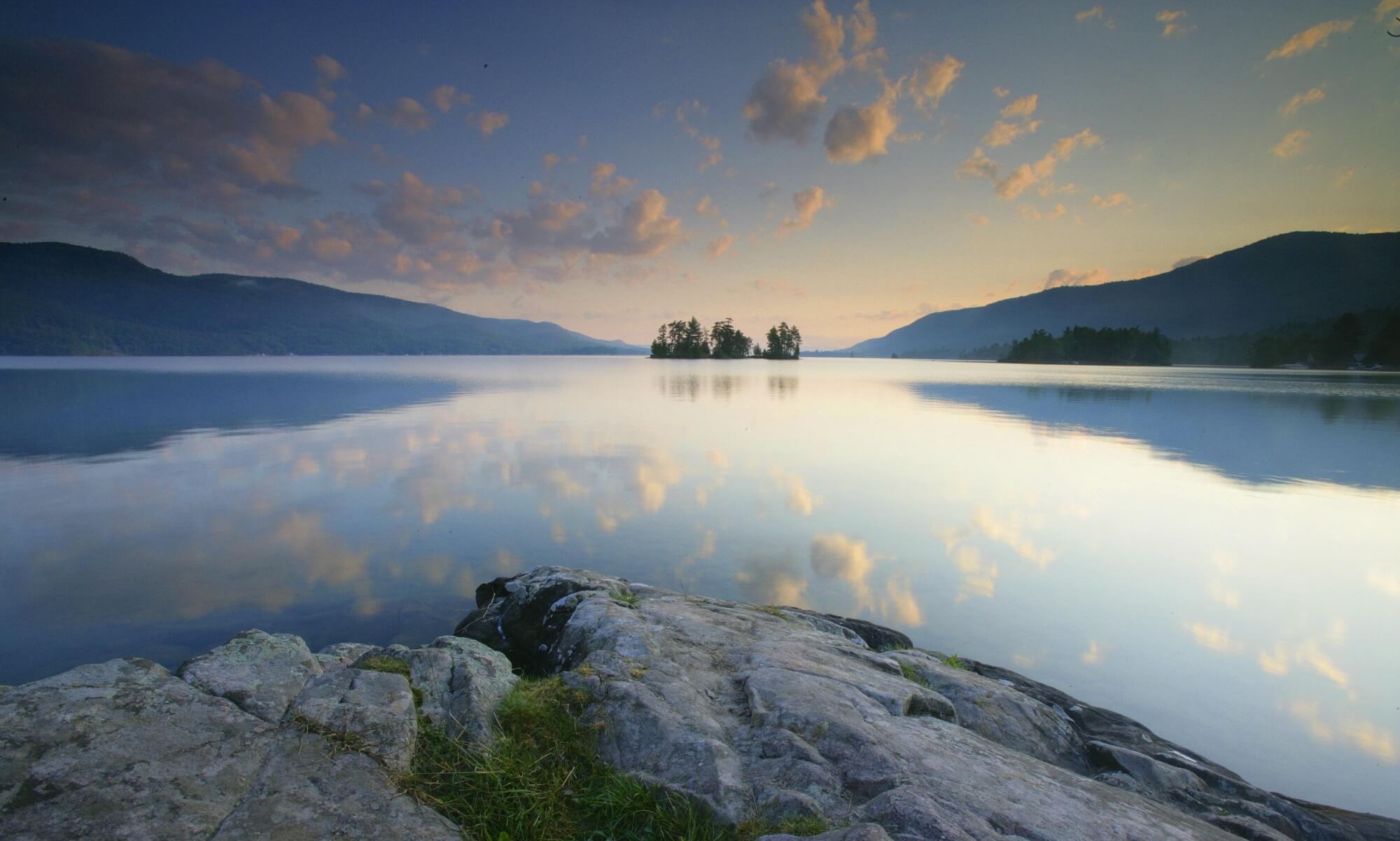 It is estimated that the stream rules being considered by the Lake George Park Commission will affect over 5,500 acres in the Lake George basin. If 5,500 acres become basically unusable, this will have a terrible effect on the tax base.
It is estimated that the stream rules being considered by the Lake George Park Commission will affect over 5,500 acres in the Lake George basin. If 5,500 acres become basically unusable, this will have a terrible effect on the tax base.
While we must do more to protect Lake George, the last thing we need to do is take this amount of acreage off the tax rolls. Our opinion is that there is a better way. Below is a comprehensive strategy that would work to improve water quality without burdening private property owners with more regulations for some and higher taxes for all.
1.) Ever consider why we get algae blooms in the Spring?
Think for yourself: what is more damaging to the clarity of the lake? Someone building a house with a silt screen ringing it while also dealing with the regulations of the APA, DEC, LGPC and the county OR every bit of salt applied during the winter months running unfettered into culverts which public highway crews cut intentionally into streams that feed Lake George?
If you’re in doubt, this is the single greatest reason why we have algae blooms in the Spring. If you’re on any of the local roads right now, they’re white from road salt. The phosphorous is what makes algae grow. The Adirondack Council recently released a report on the damaging effects of road salt. To read it, click here. (Pages 19-22 are about Lake George)
Part 1 of our plan would be a comprehensive strategy that would educate highways crews and seek to cut the application of road salt by 50% within the basin within 3 years. Taxpayers and municipalities would both win because one of the greatest winter expenses is road salt. Private homeowners should be encouraged to use products like sand or MagicSalt, a new product which we featured previously. From now on, when any environmental group informs us they’re meeting with a highway department, we’ll let you know.
This plan will need the support of all local governments. These same towns and villages are seething right now because they are not being listened to and new rules are being written by environmentalists without any regard to their input. We would guess that if the the proposed rules are enacted in their present form, you can forget about any cooperation from the Towns on the road salt issue for the foreseeeable future.
2.) You need gas for your boat but please don’t overfill.
Almost all boats on the lake have overflow valves where, if the gas tank is filled too high, gas will spill out into the water. When I was growing up, I pumped gas. It was shocking the number of people who wanted to pump their own gas and then would overfill their tanks and have gas spill into the lake. We need to undertake a major public awareness campaign to educate consumers and gas pump operators not to overfill. The Lake George Association just started a campaign like this to educate ice-fisherman to take their garbage off the Lake. While we all need gas to be available on the lake, no one should overfill and not a drop should be spilled in the lake. Education on this issue would go a long way.
3.) New technologies need to be encouraged.
There are many new technologies that are being implemented across the country that, if used in new construction or existing homes, would really help the environment. We’re not talking about low-flush toilets here. We’re talking about cool technologies that have the power to lead us in a green revolution. Storm water infiltrators that return storm water that hits impervious areas to the ground below the impervious area are being used in many highway projects today. Air infiltrators that change the microbial composition of drain fields and increase their longevity are being studied in other states. Lake George should be a leader in these technologies. We shouldn’t have our head buried in the proverbial sand.
4.) Incentives Work – Why Not Try Some
Incentives have been shown to work in professional planning. Incentives should be tried before any person’s property rights are taken away. Some possible ideas include: a “credit” accruing for future stream corridor development in return for removing an existing structure or impervious area, and a “credit” for preserving stream corridors against dock fees that the LGPC collects. The LGPC could also inform local taxing jurisdictions and recommend a lower assessment for those property owners who preserve sensitive tracks. People do things for a reason. If you give them an incentive, like saving money, you’ll be surprised. Why not try some?
5.) “Thou Shalt Not Steal” Applies to the Government Also
A lot of people who would never walk into their neighbor’s house and steal something, nevertheless think nothing of lobbying the government to take away another person’s property rights. Ultimately, property rights and personal rights are the same thing. One cannot be preserved if the other is violated.
It never hurts to remind ourselves of the nation’s founding principles. We all like open space, nice views and beautiful surroundings but sometimes we have to remember that things we might like belong to others. People sacrifice to own real estate.
Consider this as we head down the path toward controlling everything we see: How long before someone else claims a right to what you own because they feel the environment would be benefited from it? It is our suggestion that the maximum amount of flexibility and encouragement be given to the landowners who have maintained their property until this time in its natural state. They shouldn’t be beaten up and robbed, they should be thanked.
